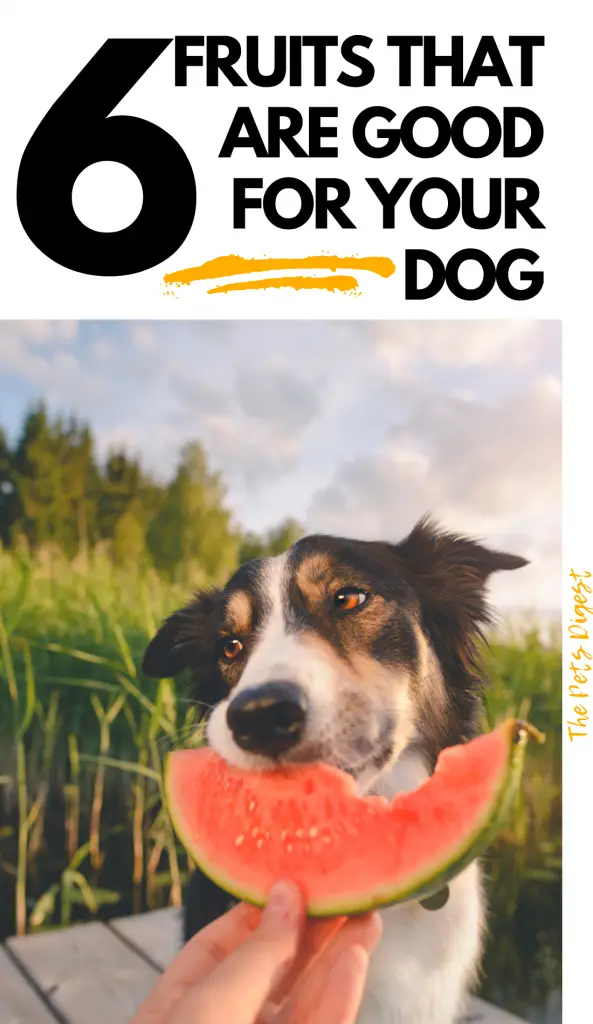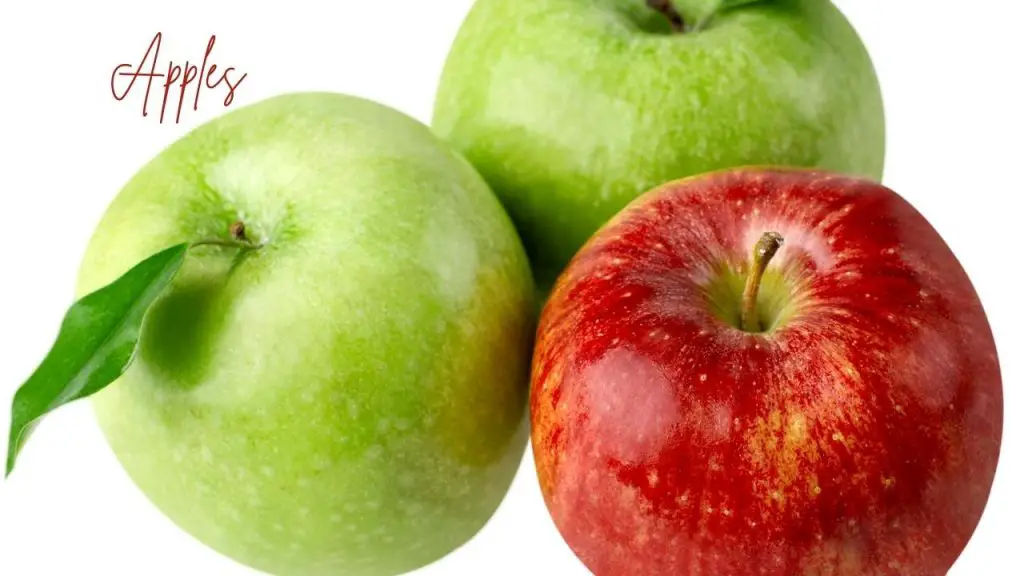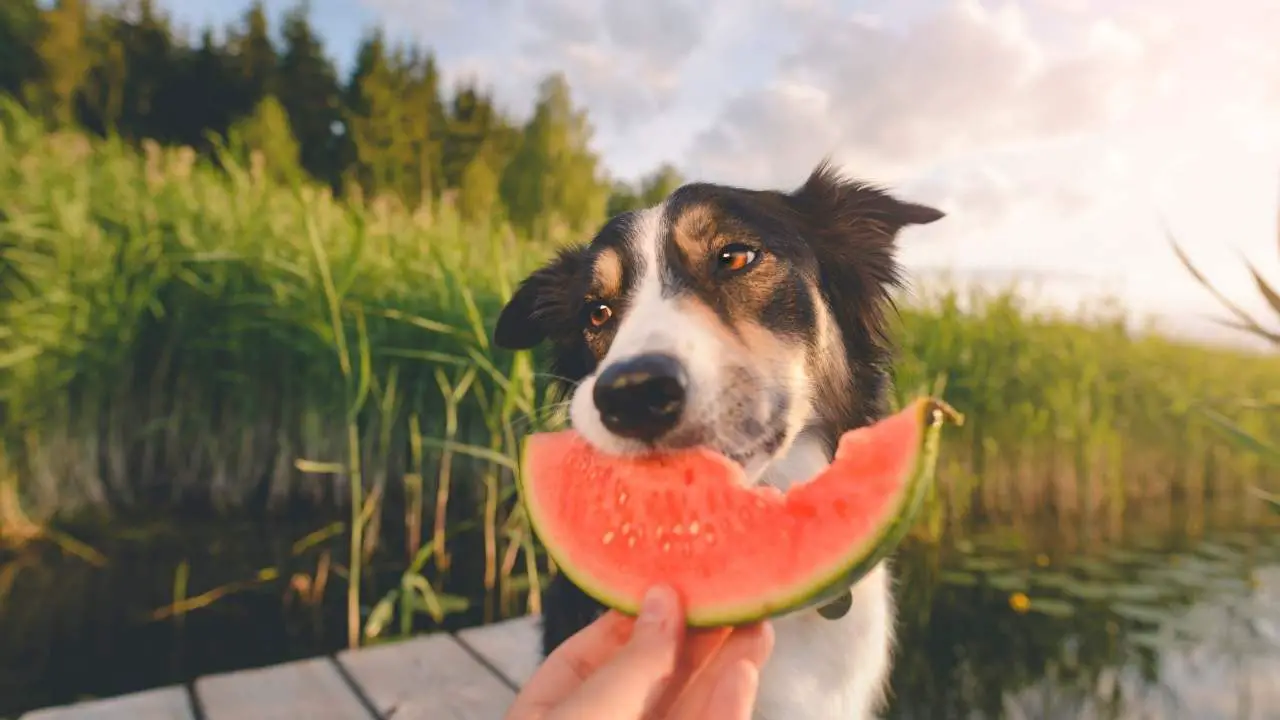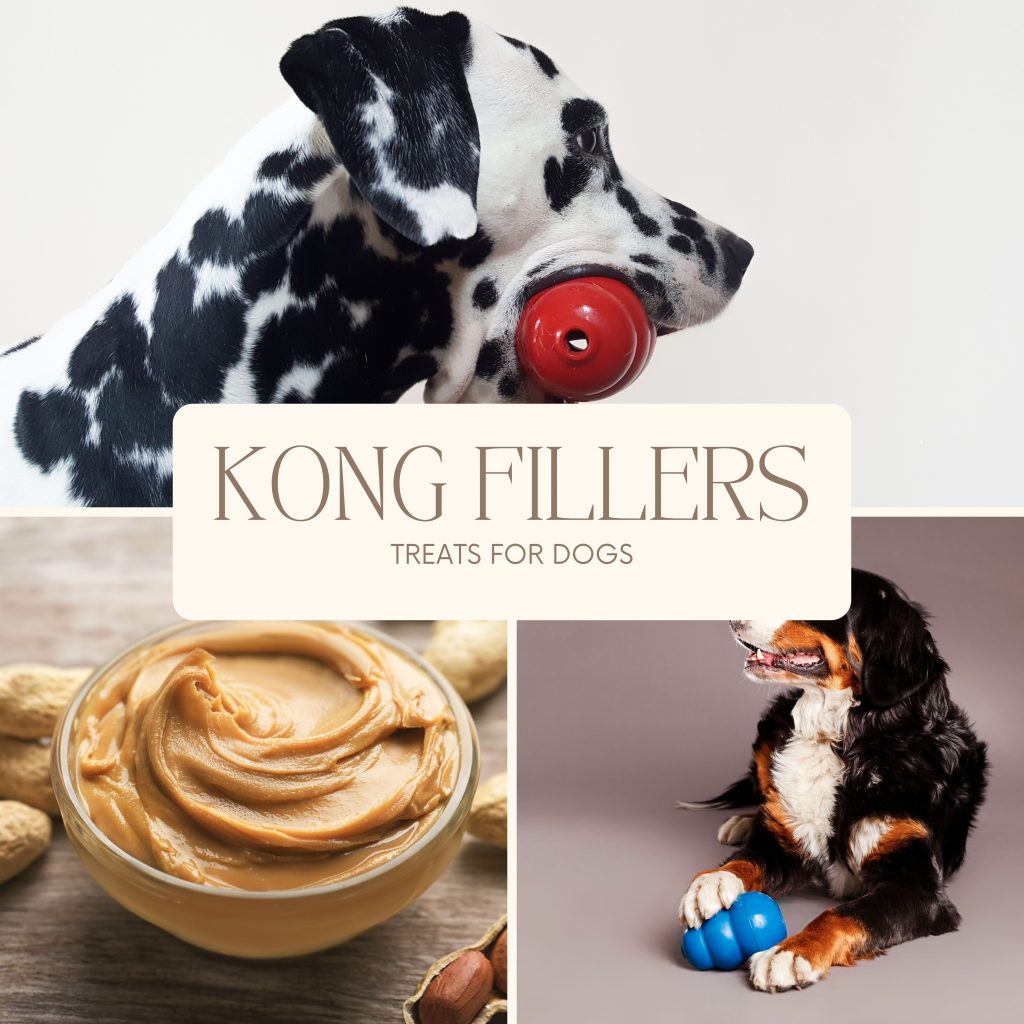Can dogs eat fruit?
Yes, they can and there are some fruits that are truly beneficial for dogs like blueberries and apples. Fruit is also a healthy treat for dogs that need low-fat treat options.
If you have a dog with digestive issues then you know the pain of finding a treat that is nutritious, safe, and organic to feed your fur baby. One of the easiest and healthiest options are fruits! But the question is, what fruits can dogs eat? After reading this article you will know the best fruits for dogs that are not only healthy but also safe options.

1. Blueberries

Blueberries top our list of the healthiest fruit you can give your dogs. While some finicky dogs, like mine, won’t like the tartness, there are others that will swallow these antioxidant-packed fruits like candy.
Why blueberries are good for dogs: Blueberries are a superfood, rich in antioxidants. Antioxidants help prevent cell damage in humans and animals. They also pack a tremendous amount of phytochemicals and fiber into their tiny frames.
How to feed your dog blueberries: Since blueberries don’t have a tough or starchy outer shell you can simply unpack or pick the blueberries, clean them and use them as ready-made treats for your fur baby.
2. Apples

My dogs love apples and they are an excellent source of vitamins and fiber for your dog they are one of the safest and best fruits that you can give dogs.
Why apples are good for your dog: Apples are great sources of vitamin C, vitamin A, and fiber for your dog. Because they are low in fat and protein, they make a good snack for senior dogs or dogs with kidney issues.
How to feed your dog apples: Make sure to remove the seed and core prior to giving a bit of apple to your dog, never give the entire apple whole. Also, peeling the skin will help your dog digest the apple a bit better. Try chopping the apple up into cubes or small slices, especially for smaller dogs. Apples are a great summer treat as you can easily freeze them for a snack when it’s warmer. Dogs can’t have things like apple pie, but you can find some great treat recipes that incorporate apples on our recipe page here.

3. Bananas

Dogs can have bananas in moderation as they do contain a lot of sugar when ripe.
Why bananas are good for your dog: Bananas are high in vitamins, biotin, copper, potassium, and fiber while being low in sodium and cholesterol.
How to feed your dog bananas: If you are eating a banana feel free to give your dog a small piece every once and a while, however as stated previously when ripe they can have a tremendous amount of sugar so if your dog has diabetes refrain from feeding them this fruit. You can also freeze banana slices to give to your dog in the summer as a treat.
4. Watermelon

Why watermelon is good for you dog: Watermelon is full of potassium and vitamins like C, B-6, and A. It is also mostly water and if it’s organically grown (not grown for sweetness) it can be a great treat every once and a while for your pup.
How to feed your dog watermelon: remove the rind as this can cause an internal blockage if eaten and get rid of any seeds. Cut the watermelon into small chunks for your dog and as with apples and bananas, it makes a great frozen treat for your dog.
5. Cucumbers

Why cucumbers are good for your dog: Cucumbers have little to no fats, oils, or carbohydrates making them a great treat for overweight dogs. They are also packed with vitamins, copper, biotin, magnesium, and potassium.
How to feed your dog cucumbers: After washing with warm water simply slice your cucumber and feed a couple of pieces to your dog. Smaller dogs, under 15 pounds, slice the initial slice into four sections for ease of eating.
6. Strawberries

Why strawberries are good for your dog: They have a ton of vitamin C and fiber and they also contain enzymes that help whiten your dog’s teeth!
How to feed your dog strawberries: Remove the stem and give one or two as a tasty treat to your dog. Most dogs won’t appreciate the tart taste but many will love them.
Honorable Mentions
There are a couple of fruits that your dog may enjoy eating but have some minor things you may want to look out for especially if your dog has a preexisting disease like diabetes. So we’ll just make these honorable mentions.
7. Raspberries

Can dogs eat raspberries? Yes, dogs can eat raspberries in moderation. Raspberries are a great training treat for pups since they are basically little antioxidant powerhouses. They have an abundance of vitamin C, manganese, and fiber so they are extremely nutritious. However, you want to ensure feeding in small quantities and in moderation, as they do contain xylitol which is toxic to dogs. In fact, they contain one of the highest naturally occurring quantities of xylitol.
8. Pineapple

Dogs can eat pineapple if it is chopped or cubed pineapple pieces and it is a pretty healthy snack option for dogs, but never give your dog canned pineapple as the syrup contains a large amount of sugar. Raw pineapple chunks are a great treat when given frozen. Make sure to peel and core the pineapple prior to feeding them to your dog. Pineapple contains a high amount of vitamin C, B6, and folate. It is also high in riboflavin, niacin, thiamin, minerals, iron, and copper. However, pineapple does contain a large amount of naturally occurring sugar which means if given too much can cause gastrointestinal issues and should be avoided in dogs with insulin issues such as diabetes.
9. Mango

Mango is extremely high in fiber, vitamin A, C, E, and B6 which makes it very nutritious however you should never allow your dog to get to the pit as they contain small amounts of cyanide and can also serve as a choking hazard.
Things to keep in mind when feeding your dog fruit
- Do all things in moderation. Don’t make fruit a meal for your canine companion, instead use fruit as a small treat that you want to give sparingly. A couple of blueberries make for a great training treat
- Don’t try to make pies or puddings like a human might like with the fruit it isn’t that healthy for them and your dog will enjoy most fruit as is.
- Aways opt for organic when possible so that you aren’t feeding your dog insecticides and pesticides
In conclusion, there are many fruits that dogs can eat and enjoy as long as you feed them in moderation since dogs don’t digest things the same way we do. What fruits do your dogs enjoy?
Make sure to share this article with a friend that is looking for a tasty but healthy treat to feed their dog!
The information shared in this blog post is for information purposes only always speak with your vet prior to giving your dog anything other than their regular dog food.






























































































































